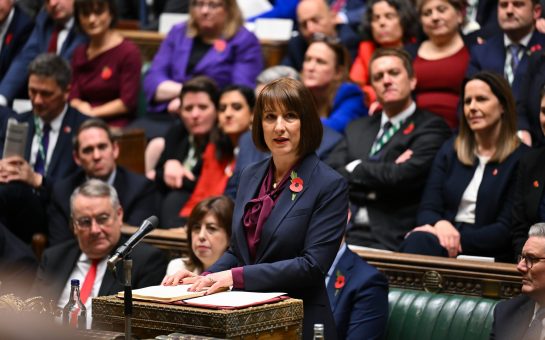Manchester Pride organisers have announced that Mayfield will be the new location for its main music stage.
The decision was made after months of uncertainty and debate as to where the event, usually held in the Gay Village, will take place.
The section of the event taking place at Mayfield, located just past Piccadilly station, will now be called Manchester Pride Live and will run over the Saturday and Sunday of the August Bank Holiday weekend.
Jeremy Hoad, Chairman of the Friends of Manchester’s Gay Village group, told Mancunian Matters: “It’s a new opportunity for Manchester Pride and hopefully it will enhance it because with a larger site and with more freedom, it provides an opportunity to expand the audience.
“The whole sense of community and activism that is part of Pride is because it is in the Village and that will continue.
“Whether the live action is at a different location or not, I don’t think that will have an impact on the sense of community and identity at Pride.
“The live music is complementary to that.”
Organisers see this as a good compromise as the space allows a larger audience of 12,000-15,000 people, which may result in attracting more high profile artists.
The site also represents a relatively close location to the Village with a five minute walk advertised between the locations.
James Heather, Development Director for U+I, the company responsible for Mayfield’s regeneration programme, welcomed the news: “It is a privilege to be able to provide a new home this year for such an iconic, ground-breaking and purposeful festival and we are delighted to be working with Manchester Pride to help create what will be a stunning weekend in a stunning location.
“Manchester Pride Live will introduce a whole new audience to Mayfield and is another important step for us as we re-introduce a long hidden and under-used asset to the people of Manchester and beyond and as we progress our long-term vision for the site.”
The Pride event has been forced to move after new developments in the Village resulted in the area no longer being able to host stages for music artists to perform on.
Primarily, the car park off Sackville Street where the main stage is usually located is being developed on.
Jeremy explained what the future could hold: “The developments will change the nature, look and feel of the Village but will also bring a lot more people in, which can be a positive thing.
“What we don’t want to see is an isolated gay ghetto.
The Village is a place that is used by all genders, sexualities and ethnicities and adapting to change has been a strength of the community.
However, he warns there is a potential risk to the fabric of life there: “There is the potential conflict between residents and bar owners.
“It is common when new residents move into areas near music venues for there to be conflict.
“What I don’t want to see is that a whole new group of people move in and complain it’s a noisy area, which potentially threatens existing businesses and the identity of the Village.
“One of the distinctive things about Manchester’s gay village is that it’s pretty much unique now across the UK in being such a clear and defined centre for LGBT activity, community, identity and culture.
“The value and purpose of the Village is not as solely as a place for LGBT people to go out and socialise, there is a far broader purpose and need for it to exist.
“It has a reach far beyond Manchester and it’s really important for somewhere to act as a beacon of hope and a place for people to be proud of.”
A similar situation has occurred in Birmingham’s smaller gay village as developments now occupy three sites usually used for stages at its pride event.
However, Birmingham Pride’s organisers have decided against moving to an alternative venue after a voters in a survey overwhelming voted in favour of staying within its village.
They are now looking at different spaces within the area that could accommodate the stages and event spaces.
Birmingham Pride has for months been campaigning against the new developments and launched petitions to stop them.
It claims that there will be a gradual erosion of the culture of the area and the closure of many of the bars and clubs synonymous with the area.
Venue owners and managers were not convinced that measures such as seal-down windows in the new apartments would be enough to prevent residents complaining about the noise and forcing gay venues to close down.
Campaigners did succeed last month in getting the council to postpone the construction of 116 apartments just metres away from the entrance of the Nightingale club because the council was unconvinced that the measures proposed would maintain a good standard of living for new residents.



